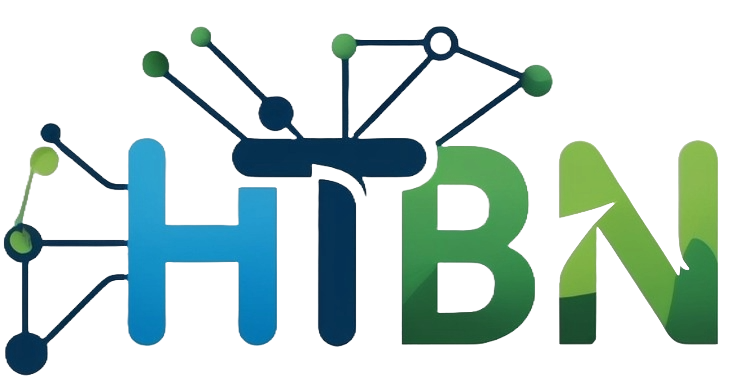Understanding SEO Basics
Search Engine Optimization (SEO) is a crucial component for anyone seeking to improve their visibility on search engines, especially on the first page of Google search. At its core, SEO involves a series of practices aimed at enhancing a website’s ranking through various techniques, primarily focusing on the content, structure, and reputation of a site. Understanding these fundamentals is essential in learning how to get on the first page of Google search results.
One of the primary elements of effective SEO is the use of keywords. Keywords are the phrases that users enter into search engines while looking for information. Incorporating relevant keywords seamlessly into website content makes it more probable for that content to appear in search results. It’s important to strike a balance with keywords, ensuring they are naturally integrated without compromising the readability of the content.
Another critical aspect of SEO is meta tags. Google search These tags provide information about a webpage to search engines, aiding them in indexing the content. The title tag and meta description, in particular, inform search engines of the primary Google search focus of a page while also attracting users through compelling descriptions in search results. Properly optimized meta tags can significantly enhance click-through rates.
Backlinks, or links from other websites to your own, also play a vital role in SEO. High-quality backlinks signal to search engines that your content is trustworthy and valuable, thereby increasing your website’s authority. Establishing a strong backlink profile is essential when aiming to achieve a top position in search results.
In conclusion, mastering the basics of SEO, including keyword optimization, meta tagging, and backlink strategies, is imperative for anyone interested in how to get on the first page of Google search, as outlined by David Aziz. A solid understanding of these foundation stones positions website owners advantageously in the competitive online landscape.
Keyword Research and Implementation
Effective keyword research is the cornerstone of achieving visibility on the first page of Google search results. David Aziz emphasizes the importance of this process as it directly influences the success of your content in reaching its intended audience. To get started, you should utilize keyword research tools like Google Keyword Planner, SEMrush, or Ahrefs to identify high-traffic keywords that are relevant to your niche. These tools provide valuable insights into search volume, competition, and related keywords, enabling you to make informed decisions about which terms to target.
Once you have compiled a list of potential keywords, it is essential to analyze their relevance to your content. Look for keywords that not only attract traffic but also align with the intent of your audience. For instance, understanding whether users are seeking information, products, or services related to your niche will guide your implementation strategy. Long-tail keywords, which are longer and more specific phrases, can be incredibly beneficial as they often have less competition and a higher conversion rate. These keywords can enhance your content’s chances of ranking highly in Google searches.
After identifying your target keywords, the next step is to implement them naturally into your content. This involves strategically placing main keywords within critical areas such as titles, headings, meta descriptions, and throughout the body of the text. However, maintaining natural flow and readability is paramount. Overstuffing keywords can lead to poor content quality and may negatively impact your search engine rankings. Therefore, aim to incorporate variations and semantic equivalents of your primary keywords to enrich your content and improve its relevancy while still making it engaging for the reader.

Optimizing On-Page Elements
Effective on-page optimization is foundational for anyone looking to understand how to get on the first page of Google Search, David Aziz emphasizes several critical elements that can significantly impact search engine rankings. By focusing on details like title tags, meta descriptions, header tags, and image alt texts, content creators can ensure their websites are both user-friendly and effective for search engines.
Firstly, title tags should be concise yet descriptive. This element appears as the clickable headline on search engine results pages (SERPs) and should effectively communicate the page’s topic. Including relevant keywords—especially terms related to how to get on the first page of Google search—can increase visibility. An ideal title tag is generally under 60 characters, allowing it to display properly across devices.
Following title tags, meta descriptions serve as a brief summary of the content within a webpage. Crafting compelling and informative meta descriptions can encourage users to click through to the site. It is advisable to incorporate the primary keywords while maintaining a conversational tone to resonate with the target audience. Ideally, these should be kept within 150-160 characters to prevent truncation in SERP displays.
Header tags (H1, H2, H3, etc.) also play a vital role in structuring content for readability and search engine understanding. Organizing content under relevant header tags helps both users and search engines navigate effectively, improving the overall user experience. For example, your primary keyword and other relevant synonyms should be included in H1 and subsequently used in H2 and H3 tags to create a logical flow.
Lastly, optimizing image alt texts is crucial. Images can enhance a page’s user experience, but without proper alt text, they may fail to be indexed correctly by search engines. Alt texts should accurately describe the image while incorporating relevant keywords when appropriate, further reinforcing the page’s topic.
Incorporating these on-page elements effectively can enhance engagement and significantly contribute to how to get on the first page of Google search, aligning with the proven strategies advocated by David Aziz.
Building Quality Backlinks
Backlinks play a critical role in improving a website’s authority and search engine ranking, especially when it comes to how to get on first page of Google search. According to SEO expert David Aziz, quality backlinks act as endorsements from other websites, signaling to search engines that your content is credible and worth ranking highly. Hence, acquiring backlinks from reputable sources should be a key component of any SEO strategy aimed at achieving first-page placement on Google.
One effective method for securing quality backlinks is through guest blogging. By contributing valuable content to respected sites within your niche, you can not only showcase your expertise but also gain backlinks to your own website. This approach allows you to tap into an established audience, enhancing your visibility while simultaneously boosting your site’s credibility. When crafting guest posts, it’s essential to focus on providing informative, high-quality content that aligns with the host site’s audience, thereby increasing the likelihood of your piece being accepted and linked back to your site.
Additionally, leveraging social media platforms can significantly enhance your backlink acquisition strategy. By sharing your content across various social channels, you increase the chances of it being seen and shared by others, which can lead to natural backlinks. Engaging with users, participating in discussions, and highlighting your website’s valuable resources will encourage others to cite your work, contributing to the overall goal of how to get on first page of Google search.
Networking within online communities such as forums, industry-related groups, or social media associations also plays a crucial role in building backlinks. By actively participating and sharing your expertise, you elevate your profile and can naturally attract links back to your site. Building genuine relationships and providing insights within these communities often leads to increased trust and credibility, which can translate into valuable backlinks.
May Be You Also Read

